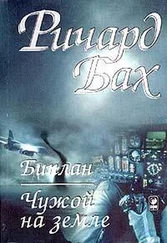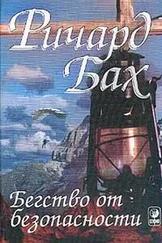Ричард Бах - Biplane
Здесь есть возможность читать онлайн «Ричард Бах - Biplane» весь текст электронной книги совершенно бесплатно (целиком полную версию без сокращений). В некоторых случаях можно слушать аудио, скачать через торрент в формате fb2 и присутствует краткое содержание. Город: New York, Год выпуска: 2012, ISBN: 2012, Издательство: Scribner, Жанр: Современная проза, на английском языке. Описание произведения, (предисловие) а так же отзывы посетителей доступны на портале библиотеки ЛибКат.
- Название:Biplane
- Автор:
- Издательство:Scribner
- Жанр:
- Год:2012
- Город:New York
- ISBN:978-1-4516-9744-5
- Рейтинг книги:3 / 5. Голосов: 1
-
Избранное:Добавить в избранное
- Отзывы:
-
Ваша оценка:
- 60
- 1
- 2
- 3
- 4
- 5
Biplane: краткое содержание, описание и аннотация
Предлагаем к чтению аннотацию, описание, краткое содержание или предисловие (зависит от того, что написал сам автор книги «Biplane»). Если вы не нашли необходимую информацию о книге — напишите в комментариях, мы постараемся отыскать её.
Biplane — читать онлайн бесплатно полную книгу (весь текст) целиком
Ниже представлен текст книги, разбитый по страницам. Система сохранения места последней прочитанной страницы, позволяет с удобством читать онлайн бесплатно книгу «Biplane», без необходимости каждый раз заново искать на чём Вы остановились. Поставьте закладку, и сможете в любой момент перейти на страницу, на которой закончили чтение.
Интервал:
Закладка:
And another interesting thing. When the engine stopped, I was not frightened. It was clear that I would have to make a landing; there was no choice. Land. Period. No discussions, no fear.
But now there is time to be concerned. It is not the forced landing that concerns a pilot, but the uncertainty of just when it will come. I can expect the engine to stop at any time; I should not be surprised if it does. I would almost be glad if the engine had not started again; I would be left with no choice but to land, and life would be much simpler. The thing to do now is to get some altitude, staying all the while over the one good strip in the desert. Then I shall set out for Fabens, staying always within gliding distance of a good clear spot. The dumb people who fly under storms.
I discover as the plan turns from thought into action and as the biplane slowly fights for altitude over the desert, engine roaring five seconds, silent for a half-second, roaring six seconds more, that ahead are coming the most difficult forty miles of my journey. There is a definite procedure laid down for pilots to follow if the engine stops, and no fear attendant. But if it doesn’t quite stop, what then? I’ll have to consider this tonight over a bowl of soup and a glass of ice water.
The biplane flies more slowly than normal, despite the full-open throttle. Pull the throttle back and the engine dies. Switch magnetos and it dies. Under a very special set of conditions it will just barely keep running. We’ll give her a try. When she stops, we’ll be confident and fearless again. I don’t care if I smash her to a splinter heap, I know I’ll walk away all right. And other soothing statements.
Skirting the right side of the storm, hardly aware that it exists, I help the little biplane through the sky. Any time I want to frighten myself, I have only to switch from the right mag to the left and listen to the silence. The adventurer is wide awake still, and urges me to overcome the fear in the switch. For his sake, to prove to myself that I am not afraid of listening to the quiet when all about the land below is desert, I switch it. But it is no use. It scares me. Yet if by itself the engine stopped and wouldn’t run again, I know that there wouldn’t be the slightest fear. Interesting. Lots of little mental relays and shuttle switches working overtime on this leg. From field, to field, to field, to field I travel, engine smoothing for a while, then cutting out again. I have in my mind a picture of the magnetos, the two of them beneath the engine cowling. It is dark in there, with oil mist swirling, but I can see the water in the seams of the magneto housings, and every once in a while another drop splashes down upon them.
I find the road on the other side of the storm and from it gain some measure of comfort. At least now I can land on the road and be near some kind of occasional rolling humanity. I wonder if motorists know how important they are to aviators. They are a source of glee when the tailwinds are there and the airplane passes the automobiles quickly. Glee, too, when the traffic is heavy on the road and a pilot can pass ten cars a second. A reassurance in the desolate lands, bringing their sign of life into view. And a last-ditch help, when glee is gone and one must land on a highway and ask aid.
Over the nose of the biplane, to the right of the road, a search answered. First ahead, then not quite within gliding distance and therefore uncomfortably distant, and at last I have captured Fabens and I don’t care if the engine stops or not. I take a sheer cool drink of relief. The wind is heading directly down the dirt strip; blessing on blessing! Throttle back, a gliding turn, steeply, to lose altitude. Imagine that. Too much altitude. I feel like a rich man lighting bonfires with hundred-dollar bills. Level above the dirt, an easing of the stick and we are down again, and stopped. Hurray! Land again beneath me, solid and smooth, and a gas pump! A Coca-Cola machine!
Fabens, Texas, I shall never forget you.

12

THERE IS A RESTAURANT IN FABENS, part of the motel on U.S. Highway 80. Like every other café and restaurant across the country, in the hour before sunrise, it is a very uncomfortable place for criminals. In Rayville it was the sheriff at breakfast, at Fabens it is the highway patrol. Two beaconed squad cars are parked in the gravel outside and four black-uniformed, six-gunned officers take their coffee at the counter, talking about a murderer caught the night before in El Paso.
I feel guilty as they talk, and glad that they aren’t still looking for murderers. I am a suspicious-looking character, sitting alone at the far end of the counter, furtively consuming a doughnut. My flight suit is smeared with rocker-box grease, ingrained with Midland-Odessa sand. My boots are white in runway dust, and I am suddenly aware that the survival knife sewn on my right boot could be a very sinister thing, a concealed weapon. I cross my left boot over the right one, feeling more and more the wary fugitive.
“You want a ride out to the airport, mister?”
I hope the sudden startled clatter of my hot chocolate cup doesn’t mark me a murderer.
“You’re the fellow with the biplane out there, aren’t you?”
“How would you know that?”
“Saw you come in last night. I do a little flying out there myself—Cessna 150.”
I forget about my concealed weapon, accept a ride, and the talk changes from murderers to the good old days of flying.
At dawn the magnetos are dry. During the engine runup before takeoff, they don’t miss a beat. That was my problem. There can be no other explanation. The magnetos were wet, and as long as I keep them dry I shall have no more difficulties with engines.
So, before the sun is quite up, a single biplane leaves the ground at Fabens, Texas, and turns to follow a highway leading west. It takes a while to settle down again. It was from this cockpit that I saw the unpleasant difficulties of yesterday, and it will be a minute or two before confidence returns that the difficulties are truly gone. Switch the mag selector from Right to Left and I cannot hear the slightest change in the sound of the engine. I could not ask for a better ignition system. But it is always good practice to keep a landing place in sight.
El Paso, with its very own mountain, in the first light of the sun. I have watched the sun on this mountain before, but I think now of the times quickly, without searching for meaning. I just know that I have been here before, but now I am in a hurry to leave El Paso, a checkpoint only, a dwindling crosshatch behind me.
The road is gone, too, and for the next eighty miles the navigation is the traditional kind: railroad track, and is this ever a desert! Visibility must be a hundred miles and it’s like looking through a microscope at a sheet of grey newsprint: clumps of desert sage on mounds of sand, each clump precisely eight feet from its neighbors on all sides. Any one clump could be the center of the desert and the rest stretch perfect and absolutely constant to the end of the earth. Even the map gives up here and sighs. The black line of the railroad track races inch on inch through the tiny faceless dots that mean there’s nothing out here at all.
Stop now, engine, and we’ll discover how long we have to wait for a train to cross these tracks. I dare not fly low. First, to give a wider choice of landing places. Second, because I am afraid that I will see rust upon the tracks.
Right magneto. Fine. Left magneto. wasn’t that the tiniest missing of a beat, there? It couldn’t have been, now quick, switch back to Both. Oh, it’s whistling-up-courage time. There was the smallest choke then, I’m sure. Automatic Rough, boy, just like the missed beats you hear in any engine as soon as it is over water and out of gliding distance from land. Yesyes that’s it, good ol’ Automatic Rough, the practical joker, and it won’t be necessary to check the mags again.
Читать дальшеИнтервал:
Закладка:
Похожие книги на «Biplane»
Представляем Вашему вниманию похожие книги на «Biplane» списком для выбора. Мы отобрали схожую по названию и смыслу литературу в надежде предоставить читателям больше вариантов отыскать новые, интересные, ещё непрочитанные произведения.
Обсуждение, отзывы о книге «Biplane» и просто собственные мнения читателей. Оставьте ваши комментарии, напишите, что Вы думаете о произведении, его смысле или главных героях. Укажите что конкретно понравилось, а что нет, и почему Вы так считаете.





